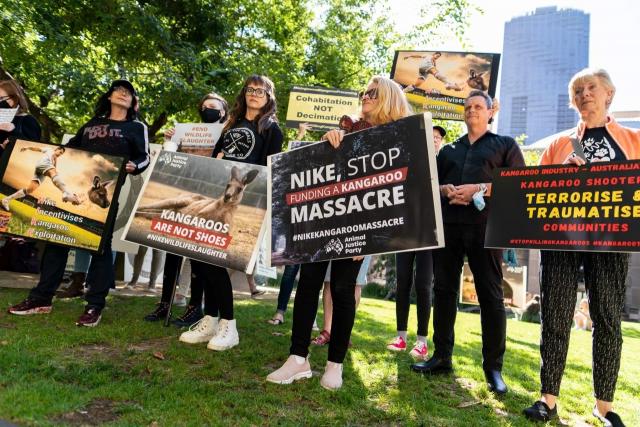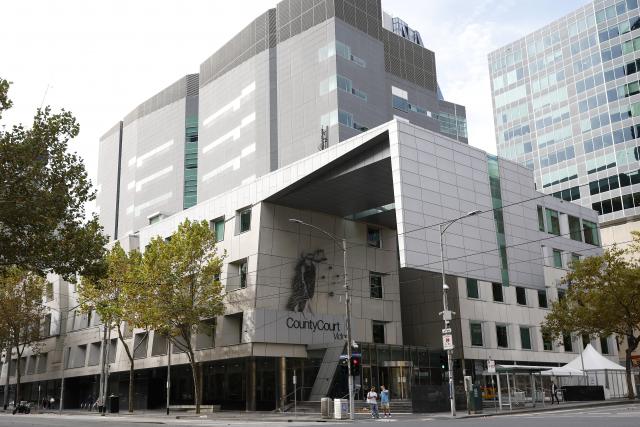Animal activists are rejoicing as another major brand, this time Japanese athletic footwear producer Mizuno, is reportedly set to phase out the use of kangaroo leather in their shoes.
Reported by Financial Times, Mizuno did not provide a timeline for their phase out but admitted it had received ‘some opposition’ to the use of kangaroo leather and would ‘select materials based on a variety of values, including environmental friendliness as well as functionality’.
The move comes two weeks after adidas announced an exit from the trade and just a week after ASICS did the same. The rapid-fire changes in corporate sourcing policies came after pressure applied by the Center for a Humane Economy and other animal welfare advocates.
The US-based Center for a Humane Economy, with its sister organisations Animal Wellness Action and the Animal Wellness Foundation, launched the Kangaroos Are Not Shoes campaign in 2020. Puma, Nike, and New Balance announced the phase-in of no-kangaroo-sourcing policies in 2023, while Sokito, a U.K.-based brand, cleansed its entire supply chain of kangaroo leather in 2024. Nike and Puma ended all trade in kangaroo skins at the end of 2023, while New Balance pledged to close out kangaroo-based shoe offerings by the end of 2024, except for a one-year extension of sales of the wildlife-based shoes in Japan.
Director of international programs for the Center for a Humane Economy Jennifer Skiff confirmed she’d been pressing Mizuno president Akito Mizuno to act with deliberate speed in the wake of the announcements from adidas and ASICS. The Center for a Humane Economy has asked for an immediate end to buying new skins and to phase out manufacturing of any shoes made from kangaroos by the end of 2025.
“This appears to be a tremendous victory for animals and for the global movement toward ethical business practices,” Ms Skiff said.
“Mizuno and its major competitors could no longer deny our stark analysis that their sourcing practices, tied to the inhumane commercial slaughter of native wildlife, were out of alignment with their animal welfare and sustainability policies.”
In January 2025, a review of listings by the Center for a Humane Economy, largely grounded on offerings from Soccer.com, found that Mizuno was offering 28 models of kangaroo-leather shoes, making it the top user of kangaroo skin in the global athletic footwear market. In contrast, other major brands have been winding down their use of kangaroo parts.
For example, adidas, whose leaders informed Center for a Humane Economy president Wayne Pacelle at its Annual General Meeting in Germany on May 15, 2025, that it would cease using kangaroo leather, apparently had only one remaining shoe model with kangaroo uppers—the Copa Mundial. Days later, ASICS told the Center for a Humane Economy in an email that it would end its relationship with kangaroo leather in 2025, citing the importance it placed on ‘ethical sourcing’ while committing to replace its few remaining kangaroo-sourced models.
“There’s been a corporate exodus from the skin trade for kangaroos in recent weeks,” Mr Pacelle said.
“Major athletic companies have been funding, through their purchases of skins, the largest massacre of native wildlife in the world, and it was time for all of them to clean up this moral mess.”
In early April, the Center for a Humane Economy launched a letter-writing campaign among Japanese consumers directed at Mizuno’s leadership, alongside an online educational initiative.
Ms Skiff said she had meetings this week with activists as they prepared to demonstrate outside Mizuno retail stores in Europe, Japan, and the United States.
But now, the company appears poised to follow the industry-wide ethical shift. Alyssa Wormwald is president of the Victorian Kangaroo Alliance, an advocacy group in Australia that has been exposing the trade and was formed in the Yarra Ranges.
“We commend Mizuno for cutting ties with the vile kangaroo wildlife trade, and congratulate the Kangaroos Are Not Shoes campaign on its latest success,” Ms Wormald said.
“Without this campaign, shoemakers would not have seen past the spin aggressively pushed by the profiteering kangaroo industry and Australian government.”
The Center for a Humane Economy thanked the support of Donny Moss and Their Turn, SPCA International, the Animal Justice Party in Australia, Victorian Kangaroo Alliance, Nature Knowledge Channel, Animals Australia, and dozens of other leading animal welfare groups that helped lead to the boost in their campaign.
Ms Skiff said she the pulse of action from athletic shoe industry leaders, led by Puma in 2023, and now this second wave of reform led by adidas in 2025.
“With this latest policy change, the top seven companies in the global athletic shoe business have made pledges to kick the habit of using the skins of the iconic Australian marsupials after the Kangaroos Are Not Shoes campaign was launched in 2020,” she said.
Learn more at KangaroosAreNotShoes.org.







